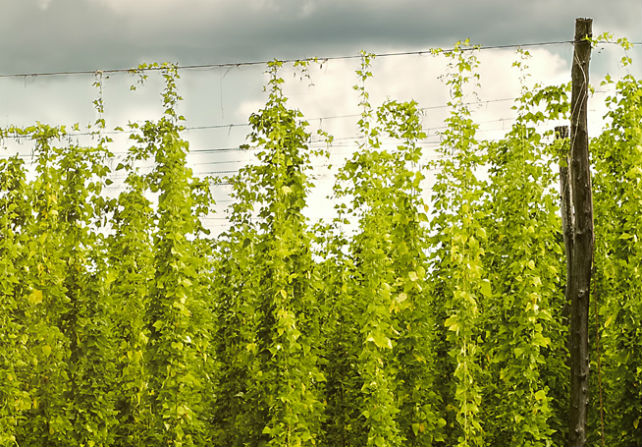Hops are the beer spice. Thanks to their unique character they are able to balance the beer by opposing the malt sweetness. They also act like a natural preservative, help increase the foam and generally affect the overall profile of the beer depending on the way they are used. To do all this hard work hops are naturally equipped with many compounds. Hops contain cellulose, protein and water, but what the brewers are mostly looking for are alpha acids, beta acids and essential oils. The most researched alpha acids are humulone and cohumulone. Not to get to chemical here, but the former provides a softer bitter flavor, while the later is responsible for the harsh bitterness. The bitterness from the alpha acids gets extracted during the boil. The longer the hops are in the boil, the beer becomes more bitter. Alpha acids also come into play when the beer gets exposed to light, leading to a skunky tasting beer. While alpha acids get almost immediately dissolved during the boil, it takes a certain amount of time to break down the beta acids. The beta acids affect the flavor of the beer during longer periods of storage and aging. Essential oils are important for the flavor and aroma. The later the hops are added to the boil, the essential oils have more affect on the flavor and aroma. When added earlier, most of these essential oils get destroyed.
Taking all of these information into account helps us understand a bit better why timing is important for getting the best out of the complex chemical structure of the hops. Careful preparation of the hopping schedule and then sticking to the procedures, hop amounts and timings all play their role in this part of the brewing process that greatly impacts the beer. During history, hops were not always the first choice for brewers. Things like wild rosemary, heather, and ginger, to name a few, replaced them. It still turned out to be beer, but in our humble opinion it is great that hops won this battle.
Image

Beerpedia
Image

